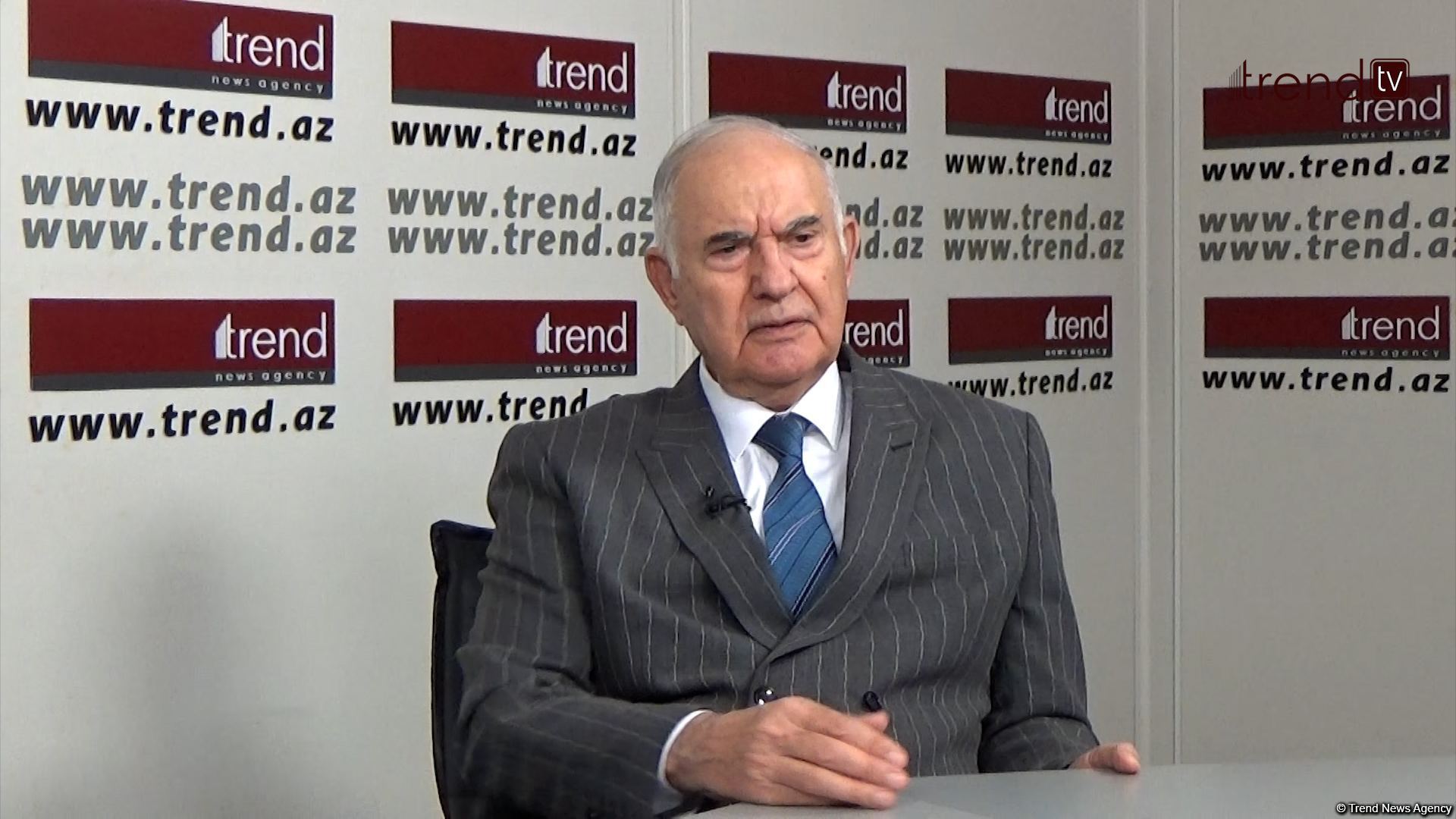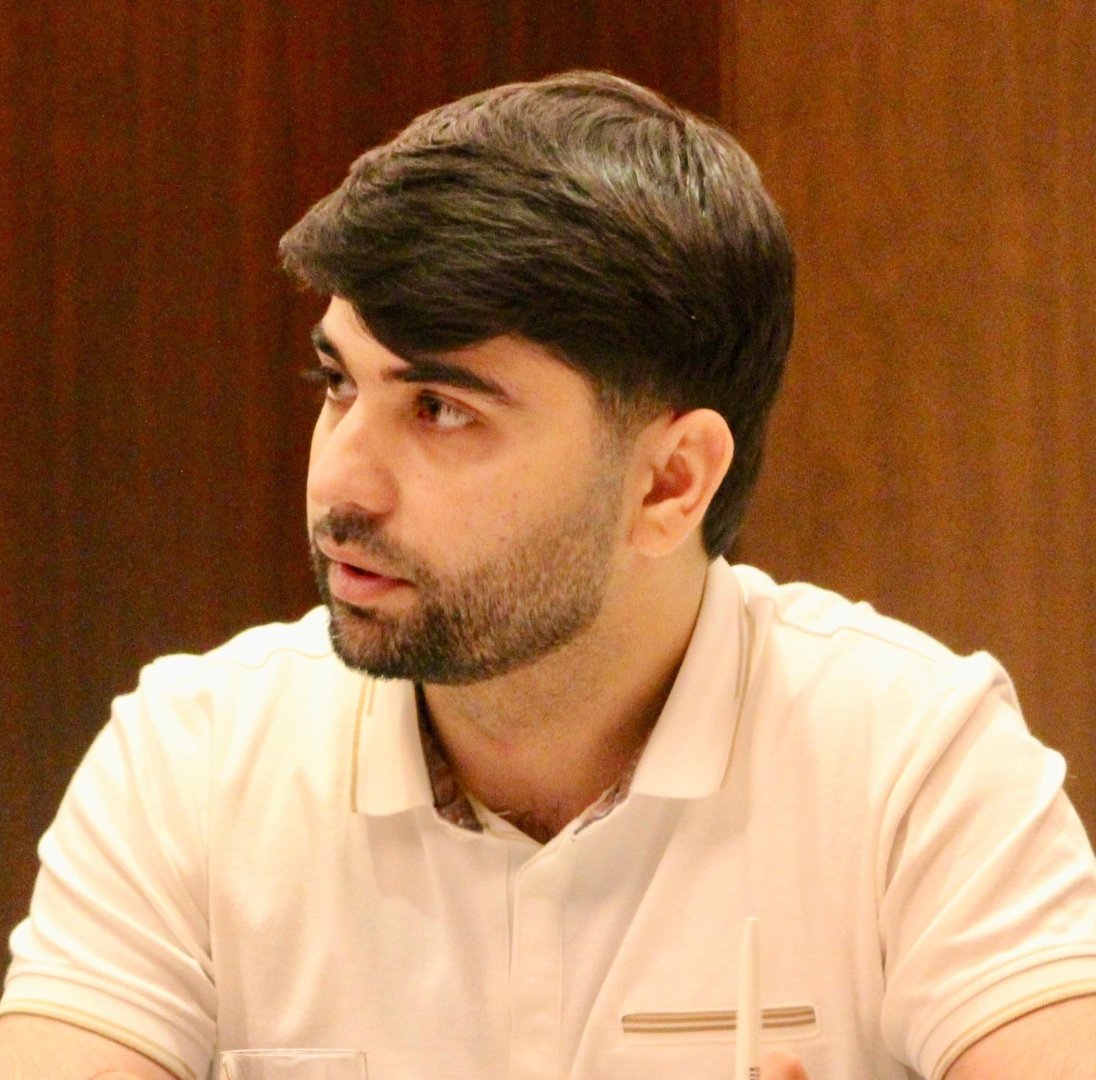BAKU, Azerbaijan, April 17. The friendly and strategic partnership between Azerbaijan and Georgia, built on solid foundations, remains one of the main pillars of stability and sustainable development in the South Caucasus, Azerbaijani political analyst Azer Garayev told Trend.
According to him, these relations, shaped by historical, geographical, and cultural proximity, are today yielding significant results both bilaterally and multilaterally. The broad spectrum of partnership—from political dialogue to cooperation in energy, transportation, investment, humanitarian issues, and security—holds strategic importance for the region’s future.
“Azerbaijan and Georgia present a remarkable example of cooperation in the energy sector,” he said. The foundation of this cooperation was laid in the late 1990s and has since deepened, becoming strategic in nature. Georgia serves as a key transit route for Azerbaijan’s oil and gas exports to global markets. The Baku–Tbilisi–Ceyhan oil pipeline plays a vital role in transporting Azerbaijan’s Caspian oil to the Mediterranean. The Baku–Tbilisi–Erzurum gas pipeline and the South Caucasus Pipeline are integral components of the Southern Gas Corridor, contributing to Europe's energy security. Azerbaijan also plays a major role in Georgia's domestic energy market. For years, SOCAR has been supplying natural gas to Georgia, ensuring stable energy provision for Georgia and securing a strategic market for Azerbaijan. SOCAR’s operations in Georgia also include retail sales of petroleum products, gas distribution management, and social projects,” he noted.
The analyst pointed out that President of Azerbaijan Ilham Aliyev, in a press statement with Mikheil Kavelashvili on April 16, underlined that the oil and gas projects, the oil and gas pipelines, and the transport and communication initiatives jointly implemented by Azerbaijan and Georgia are truly of great significance and have not only reshaped the transportation and energy map of the South Caucasus but also that of the entire Eurasian region.
"The head of our state said that if we are talking about the energy security of Europe today, it is impossible to imagine it without Azerbaijan and Georgia. Currently, Azerbaijan exports natural gas to 12 countries, including Georgia, and these exports are carried out through Georgia. That is, it can be said that Azerbaijan and Georgia make essential contributions to Europe’s energy security,” Garayev explained.
The analyst pointed out that Azerbaijan and Georgia enjoy extensive cooperation in transportation and transit, which plays a strategic role in regional economic integration and the development of international trade relations.
“The Baku–Tbilisi–Kars railway is one of the most important infrastructure projects in this regard, enabling faster and safer freight transport between China, Central Asia, and Europe. Within the Middle Corridor (Trans-Caspian International Transport Route) framework, the two countries have taken key steps in creating logistics hubs and simplifying customs and border procedures. Azerbaijan’s Alat International Sea Trade Port and Georgia’s Poti and Batumi ports are essential elements of this system. This cooperation enhances the competitiveness of the China–Europe route within Eurasia and increases transit revenues for both countries. As the head of our state also noted, achievements in the field of transport and communications - the newly built railways and ports - have created great synergy in both Azerbaijan and Georgia. In fact, they have become an integral part of the Middle Corridor. He emphasized that If today we are talking about the Middle Corridor project in the South Caucasus, it is the corridor that passes through Azerbaijan and Georgia. Both countries are deeply interested in developing transport and communication infrastructure and are working together in this area. As a result, cargo volume through both countries is increasing, strengthening their positions within global transportation routes,” he noted.
Garayev pointed out that the political dimension of Azerbaijan–Georgia relations has always been stable and exemplary.
“There are regular visits and meetings between heads of state and other high-level officials. For example, both newly re-elected Georgian Prime Minister Irakli Kobakhidze and President Mikheil Kavelashvili made their first official visits to Azerbaijan. This clearly demonstrates the high level of bilateral relations. This dialogue facilitates the formation of common positions on regional developments, the protection of mutual interests, and the advancement of joint regional initiatives. Georgia has always unequivocally supported Azerbaijan’s territorial integrity, a stance reiterated many times on international platforms such as the UN, OSCE, and the Council of Europe. Meanwhile, Azerbaijan respects and supports Georgia’s sovereignty and territorial integrity,” he noted.
According to the analyst, Azerbaijan is one of the largest foreign investors in Georgia, particularly through SOCAR’s investments and infrastructure projects, which form the backbone of economic ties.
“Besides, Azerbaijani entrepreneurs are actively involved in various sectors in Georgia, including construction, agriculture, services, and tourism. Trade turnover has also shown increasing momentum over the years. Georgia is not only one of Azerbaijan’s largest trade partners but also one of the key pillars of economic integration in the South Caucasus. The mutual relations between Azerbaijan and Georgia hold promising prospects not only for the present and the past but also for the future. Geopolitical shifts in the region, the need for new energy and transport routes, and the emergence of alternative links between Europe and Asia create fresh opportunities for both countries. Furthermore, cooperation in the field of green energy, the development of renewable energy projects between the Caspian and Black Seas, and green cable initiatives are on the agenda for the near future. This strategic partnership stands as a rare model of regional stability, economic growth, and multilateral cooperation. Thanks to the joint efforts of Azerbaijan and Georgia, the South Caucasus is steadily becoming a stronger and more competitive region,” Garayev added.







